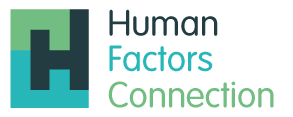
Consultancy
Our Services
Delivering real safety and performance benefits by optimising the human contribution
We engage with staff at all levels across the organisation to ensure you have the right tools, right environment and right capability to maximise performance. Our consultancy support is pragmatic and actively managed to take account of operational context.
Services include:
- Human Error Analysis: Through structured techniques we identify the possible effects on human performance brought about by the introduction of a new system or changes to an existing system, we then assess the level of risk and identify mitigations to reduce these to a tolerably safe level
- Task Analysis: Task analysis refers to a number of techniques that can be used to describe and analyse what is required to accomplish a stated objective (task). Through the application of techniques such as Hierarchical Task Analysis, user analysis, walkthroughs, questionnaires and observation we can inform design decisions and training requirements and highlight specific tasks which have a high impact on human performance or operations.
- Ergonomic assessments: Systematic consideration of the layout and design of the workspace will ensure that the work environment, workstations and the layout of equipment can support the users in the tasks they need to undertake both in standard and emergency situations. Using ergonomic measurements and methodologies it is possible to optimise designs, assist with the integration with legacy equipment and ensure workstations are compliant with relevant Health and Safety legislation.
- Usability testing and user trials: User testing on lo and hi fidelity representations allows users to get the look and feel of interfaces, assess the behaviour of the design, provides usability metrics and increases user buy in.
- Safety Culture Surveys: Safety Culture is the way safety is perceived and prioritised within organisations. It’s not something you can buy but something an organisation has. It can have a direct impact on safety performance because if people do not believe that safety is really a priority then it is more likely they will cut corners or make less safe decisions. By undertaking a review of company Safety Culture we can provide an understanding of how safety is perceived within organisations and provide practical advice on improving attitudes towards safety and reducing areas of risk.
- Assessment of training effectiveness: By determining the degree to which users of a new system are confident in use of the technology and procedures we can assess whether training has been effective.
Benefits
- Minimises the risk of problems later in the project when it is realised that people can’t use the system or do their job effectively
- Increases user acceptance of the new system thus easing the transition
- Leads to a final system which is intuitive to use and supports human capabilities, which in turn saves on training time and costs.
- Results in work environments that not only minimise risks to users health but optimise efficiency and performance.
